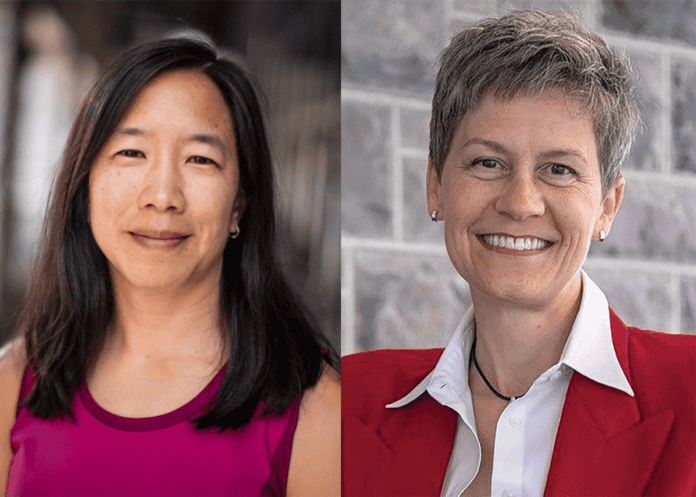The U.S. is facing its largest measles outbreak in more than 30 years, with at least 1,277 confirmed cases across 36 states and Washington, D.C. Two Virginia Tech experts say the reason why is clear and explain why it’s spreading so quickly and how to stop it.
“In 2000, measles was considered to be eliminated in the U.S., but now it’s back and that’s because vaccination rates have dropped,” said Linsey Marr, a Virginia Tech environmental engineer and leading expert in aerosol virus transmission.
Marr, who studies flu transmission and was highly cited during the COVID-19 pandemic, says measles spreads much like COVID-19 — through microscopic respiratory particles that can hang in the air for hours. “The virus can survive in these particles and linger in the air, long after the infected person has left the room. Then someone else can breathe in the particles and become infected,” she said.
In fact, Marr points to an older but striking case. “In the 1980s, unvaccinated patients caught measles after being in a pediatrician’s office one hour after an infected patient had been there.”
She adds that, unlike some viruses where weather seems to play a role, the spread of measles is largely driven by human behavior, especially gatherings and travel.
Lisa M. Lee, an infectious disease epidemiologist at Virginia Tech, underscores just how contagious it is. “It’s much more transmissible than COVID-19,” she said. “One person with measles can infect up to 20 others if they’re not vaccinated or haven’t had the disease before.”
The good news? This is a crisis we can prevent.
“The most effective way to stop the spread is to ensure at least 95% of a community is fully vaccinated,” Lee said. “That level of coverage is what it takes to protect everyone, especially children who are the most vulnerable.”
Doctors recommend two doses of the vaccine — the first at 12 months of age and the second between ages 4 and 6 years. Adults who never had the vaccine or the disease can still get immunized. “Together, these two doses are 97% effective. Even having just the first in the series provides about 93% protection,” said Lee.
Lee says it is important now that measles is circulating again to reconsider being vaccinated. “The measles vaccine has been in use for 40 years and hundreds of millions of people in the US have gotten it. Talk with your doctor or local health department and get accurate information so you can make an informed decision. Then, as soon as you are ready, get the vaccine.”
Its side effects are rare, mild, and temporary. “The most common is discomfort in the area where you get the shot or a slight fever the following day. These side effects are much less severe than the risks from getting a case of measles,” said Lee.
Measles isn’t just a mild childhood illness. “One to three of every 1,000 children infected will die,” Lee said. “Others can experience debilitating complications, including ear infections leading to permanent hearing loss, vision loss, and even inflammation of the brain. In rare cases, there are long-term complications that can be fatal up to 10 years after illness.”
As the country faces this alarming uptick in cases, Lee urges one clear solution: protect yourself and your community by getting vaccinated.
About Marr
Linsey Marr is a University Distinguished Professor in the Charles E. Via, Jr. Department of Civil and Environmental Engineering at Virginia Tech. She is one of a small number of experts on aerosol transmission of viruses. Marr has been working with airborne viruses for the past 15 years, but her expertise became widely known during the COVID-19 pandemic. Marr and her team have also researched the efficacy of public health interventions, such as increased ventilation in buildings and common face coverings, for minimizing the spread of the flu and COVID-19. She has provided expertise to the World Health Organization, the Centers for Disease Control, the White House Office of Science and Technology Policy, and members of Congress. She is a MacArthur Fellow and a member of the National Academy of Engineering.
About Lee
Lisa M. Lee is an epidemiologist and bioethicist. She is the senior associate vice president for research and innovation and professor of public health at Virginia Tech. For more than 25 years, she has worked in public health and ethics, including 14 years at the Centers for Disease Control and Prevention. She served as the inaugural Chief of Bioethics at Walter Reed Army Institute of Research. During the Obama administration, she served as executive director of the Presidential Bioethics Commission. She has provided expertise to numerous national and international organizations, including the World Health Organization, Chatham House in the UK, The Wellcome Trust, the Government Accountability Office, the Food and Drug Administration, and the National Academies.


